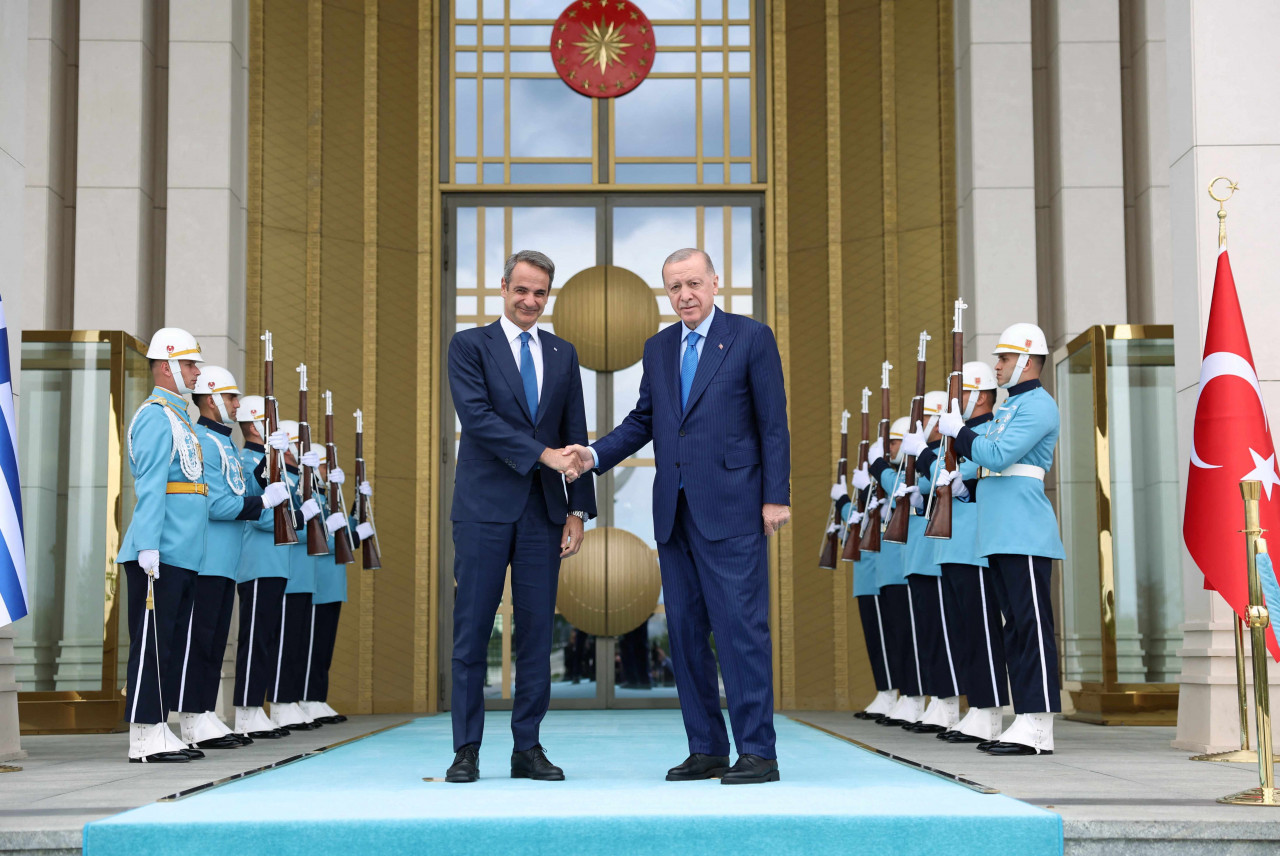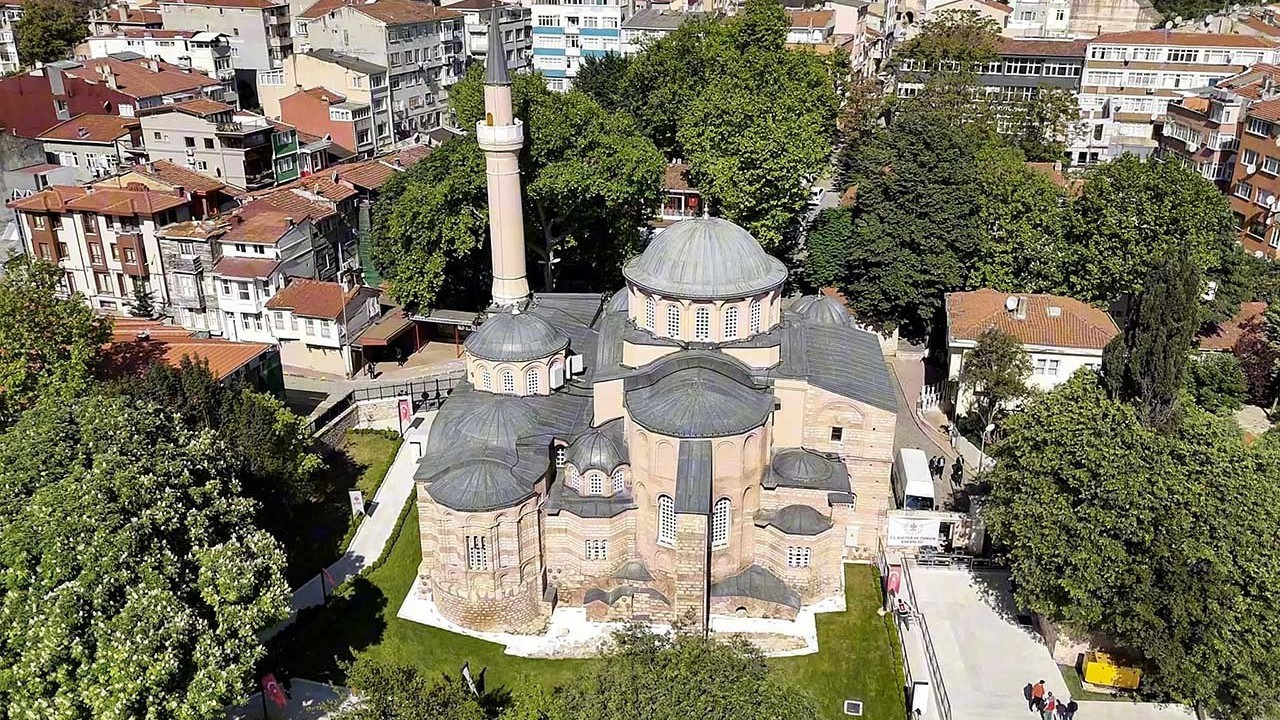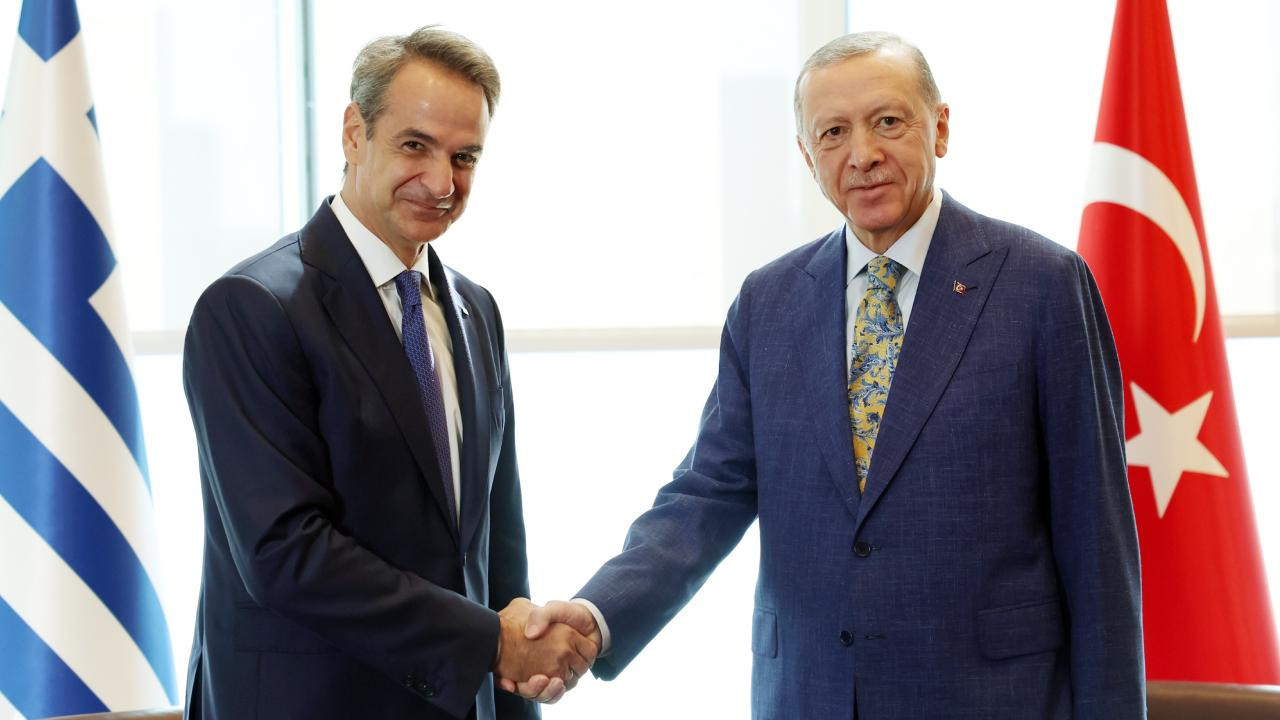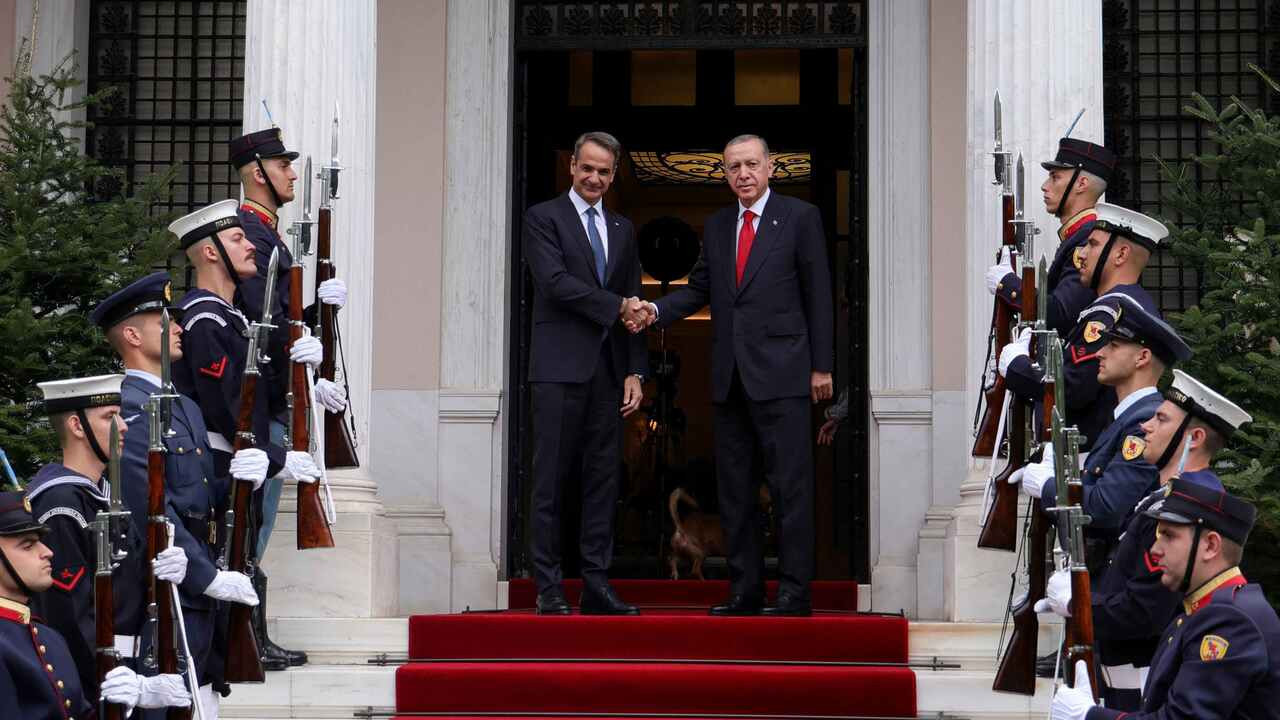Turkey's Erdoğan hosts Greek PM Mitsotakis, sees 'no unsolvable problems' in bilateral ties
Turkish President Erdoğan hosted Greek Prime Minister Mitsotakis in Ankara as part of the attempts to thaw the dense relationship between the two neighbors. Erdoğan told Mitsotakis during talks that there were "no unsolvable problems" between their countries.
Duvar English & Reuters
Turkish President Tayyip Erdoğan told Greek Prime Minister Kyriakos Mitsotakis during talks in Ankara on May 13 that there were "no unsolvable problems" between their countries.
Turkey and Greece, NATO allies and historic foes, have long been at odds over issues including maritime boundaries, energy resources in the eastern Mediterranean, flights over the Aegean Sea, and ethnically split Cyprus.
After years of tensions that brought the two to the brink of conflict, they have started taking high-profile steps to improve ties,especially since both leaders were re-elected last year.
"Despite disagreements, we focus on a positive agenda by keeping our dialogue channels open," Erdoğan told a joint press conference with Mitsotakis.
Mitsotakis said the leaders' frequent meetings in recent months had "proved that we neighbors can establish an approach of mutual understanding, not as an exception but as a productive normality".
"We showed today that alongside our proven disagreements, we can chart a parallel page of agreements," he added.

Erdoğan visited Athens last December and the two countries signed the "Declaration of Athens" aimed at setting the base for a roadmap to rebooting relations.
They agreed to boost trade, keep communication channels open, carry out military confidence-building measures to reduce tensions, and work on problems that have kept them apart.
The two leaders disagreed over how to classify the Palestinian militant group Hamas. Erdoğan reiterated his view that it is a "resistance movement" and said he was saddened by the Greek view - shared by many other Western countries - that it is a terrorist organization.
Turkish President underscored that "I do not see Hamas as a terrorist organization, on the contrary, I see Hamas as people who struggle to protect their own lands and their own people. Hamas is a resistance organization whose lands have been occupied since 1947, and who took their lands under protection after the occupation of these lands."
Erdoğan also stated that more than 1,000 members of Hamas are under treatment in Turkey.
A Turkish official, who spoke on condition of anonymity to Reuters, later said that Erdoğan had meant to refer to Palestinians from Hamas-run Gaza in general, rather than Hamas members.
Reuters could not immediately determine the background of those being treated in Turkey, but in November Ankara said it was evacuating dozens of wounded or sick Gazans, mostly cancer patients, and their companions following Israel's offensive in Gaza.
"You may have a wrong approach here. I can never agree, I cannot agree," Erdoğan told Mitsotakis.
"Let's agree to disagree," Mitsotakis replied. "There is a difference of opinion with Turkey on the Middle East. Israel's incursion into the Gaza region. We know that Turkey sees Hamas with a different approach. However, we both agree on stopping the bloodshed in the region," Greek PM noted.
On May 12, Mitsotakis told Turkish daily Milliyet that his visit to Ankara - the first in five years - was an opportunity to evaluate progress and to reiterate Athens' commitment to improving ties.
Erdoğan, speaking to Greek daily Kathimerini on May 12, said the main goal was to "raise the level of our bilateral relations to unprecedented heights", adding the neighbors had many issues they could agree on while seeking solutions to their problems.
However, the allies remain at loggerheads over several issues including maritime jurisdiction.
Greece's plan to build a marine park in the Aegean, which it says is for environmental purposes, has upset Turkey, while Athens was annoyed by Turkey's decision to turn the ancient Chora church, previously a museum for decades, into a mosque.
"It was a sad development for us to see Chora functioning as a place of worship again," Mitsotakis stated during press conference.
In a tweet shared after their meeting, President Erdoğan stated, "Our hopes for the future of our cooperation increase with each meeting. Despite differences of opinion, we keep our dialogue channels open and focus on the positive agenda."
Yunanistan Başbakanı Sayın Miçotakis ve heyetini Ankara’da misafir etmekten büyük memnuniyet duydum. 🇹🇷🇬🇷
— Recep Tayyip Erdoğan (@RTErdogan) May 13, 2024
Türkiye-Yunanistan arasındaki iş birliği ruhunun güçlenmesinin her iki ülke ve tüm bölgemiz için hayırlı olacağı inancındayız.… pic.twitter.com/O3Y3Y6iDj0

 Greece’s Mitsotakis to voice ‘discomfort’ over converted Chora Museum during Turkey visitDiplomacy
Greece’s Mitsotakis to voice ‘discomfort’ over converted Chora Museum during Turkey visitDiplomacy Greek PM Mitsotakis to visit Ankara in May in thaw with TurkeyDiplomacy
Greek PM Mitsotakis to visit Ankara in May in thaw with TurkeyDiplomacy Greece, Turkey agree to reboot relations during Erdoğan's visit to AthensDiplomacy
Greece, Turkey agree to reboot relations during Erdoğan's visit to AthensDiplomacy